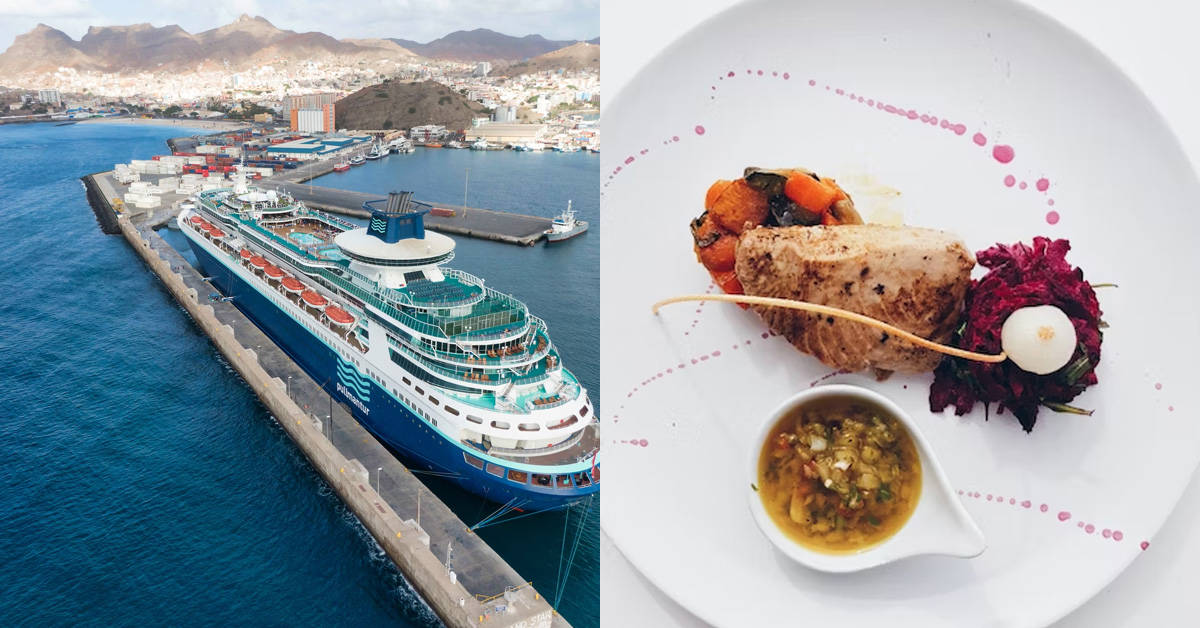Cape Verdean cuisine is a unique blend of African, Portuguese, and Brazilian influences, reflecting the country’s history and cultural diversity. Located off the coast of West Africa, Cape Verde is an archipelago of ten volcanic islands, each with its own distinct culinary traditions.
The cuisine is characterized by the use of fresh seafood, beans, rice, and vegetables, as well as spices and herbs such as garlic, onion, bay leaves, and coriander. Cape Verdean food is known for its bold flavors, hearty portions, and communal dining style, making it a popular choice for family gatherings and celebrations.
Cape Verdean cuisine halal or not?
Is Cape Verdean food halal?
Cape Verdean cuisine is influenced by Portuguese, African, and Brazilian cuisine, and may include pork and other non-halal ingredients. It is recommended to inquire about the ingredients and preparation methods before consuming any Cape Verdean dish.
What kind of food do Cape Verdean eat?
Cape Verdean cuisine is a fusion of African, Portuguese, and Brazilian influences. Some popular dishes include:
- Cachupa – a stew made with corn, beans, vegetables, and meat or fish.
- Feijoada – a bean stew with meat and vegetables.
- Grilled fish or seafood – often served with rice and vegetables.
- Xerém – a cornmeal porridge with meat or fish.
- Pastel – a fried pastry filled with meat or fish.
- Grogue – a local rum made from sugarcane.
Cape Verdean cuisine also includes a variety of fruits, such as papaya, mango, and coconut, and desserts like bolo de coco (coconut cake) and pudim de leite (milk pudding).
How can you tell if the food is halal in Cape Verde?
Cape Verde is a predominantly Christian country, but there is a small Muslim community. Finding halal food in Cape Verde may be challenging, but it is possible. Here are some ways to tell if the food is halal in Cape Verde:
- Look for halal certification: Some restaurants and food manufacturers in Cape Verde may have halal certification from recognized Islamic organizations. Look for the halal logo or ask the staff if they have halal certification.
- Ask the staff: If you are unsure if the food is halal, ask the staff if they use halal ingredients or if they have any halal options.
- Avoid pork and alcohol: Muslims are not allowed to consume pork or alcohol, so avoid any dishes that contain these ingredients.
- Eat vegetarian: If you are unable to find halal meat, opt for vegetarian dishes instead.
- Bring your own food: If you are traveling to Cape Verde and are concerned about finding halal food, consider bringing your own food or snacks.
Is it hard to find halal food in Cape Verde?
It may be challenging to find halal food in Cape Verde. The majority of the population in Cape Verde is Christian, and there are only a few Muslim communities.
Therefore, halal food options may be limited, and it may be necessary to bring your own food or cook your meals. However, some hotels and restaurants may offer halal options upon request.
Is Cape Verdean food healthy?
Cape Verdean cuisine is generally considered healthy as it is based on fresh seafood, vegetables, and fruits. The traditional dishes are often grilled or stewed, and the use of spices and herbs adds flavor without adding excessive amounts of salt or fat.
However, some dishes may be high in carbohydrates and calories, such as the popular dish Cachupa, which is made with corn, beans, and meat. As with any cuisine, it is important to consume in moderation and balance with a healthy lifestyle.
What is Cape Verdean food similar to?
Cape Verdean food is similar to Portuguese, African, and Brazilian cuisine. It often includes seafood, beans, rice, and stews, and is known for its use of spices and herbs such as garlic, onion, paprika, and bay leaves.
Some popular dishes include cachupa (a stew made with corn, beans, and meat or fish), pastel (a fried pastry filled with fish or meat), and feijoada (a bean and meat stew).
Steps to find halal food in Cape Verde
Here are some tips to find halal food i Cape Verde:
- Research: Start by researching the local cuisine and food culture in Cape Verde. This will give you an idea of what to expect and what to look for when searching for halal food.
- Ask locals: Ask locals for recommendations on where to find halal food. They may be able to direct you to restaurants or markets that cater to halal dietary requirements.
- Check online: Use online resources such as HalalTrip or Zabihah to find halal restaurants in Cape Verde. These websites provide a comprehensive list of halal restaurants and food options in different cities around the world.
- Look for halal certification: When visiting restaurants or markets, look for halal certification or ask the staff if they serve halal food. Halal certification ensures that the food has been prepared according to Islamic dietary laws.
- Choose seafood: Cape Verde is known for its seafood, which is generally considered halal. Look for seafood restaurants or markets that offer fresh fish and other seafood options.
- Avoid pork and alcohol: As pork and alcohol are not halal, it is important to avoid these items when searching for halal food in Cape Verde.
- Be flexible: While it may be challenging to find halal food in Cape Verde, it is important to be flexible and open to trying new foods. Look for vegetarian or vegan options, or try local dishes that are made with halal ingredients.

